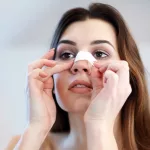Ever notice how a few minutes of painting, gardening, or even sorting puzzle pieces can make the weight of the day feel lighter? Hobbies aren’t just pastimes—they’re a low‑cost, low‑risk prescription for a happier, healthier you. In the next few minutes we’ll dive straight into the science‑backed advantages of hobbies, sprinkle in a few real‑life stories, and give you a practical roadmap for picking the perfect one. Ready? Let’s get started.
Why Benefits Matter
Think of the benefits of hobbies as a three‑part recipe: body, mind, and community. Each ingredient adds its own flavor, and together they create a life that feels richer and more balanced.
- Physical spark: Better heart health, stronger muscles, and a boosted immune system.
- Mental lift: Lower stress, sharper memory, and a brighter mood.
- Social seasoning: New friendships, deeper connections, and a sense of purpose.
All of these win‑wins show up whether you’re dancing in your living room, knitting a scarf, or exploring a local hiking trail. Below we break down each benefit in detail, backed by recent research and a pinch of personal experience.
Physical Health Boosts
How Hobbies Improve Cardiovascular Health
When you get your heart pumping—whether you’re doing a salsa routine or briskly walking a garden path—you’re giving your cardiovascular system a gentle workout. According to a National Geographic study on running, just three weekly sessions can slash the risk of heart attack and stroke. The same principle applies to other rhythm‑based hobbies like dancing or even fast‑paced knitting (yes, there’s a thing!).
Practical tip
Set a timer for 20 minutes of movement‑based hobby each day. You’ll hit the “moderate exercise” sweet spot without feeling like you’re at the gym.
Strength, Flexibility & Bone Density
Activities that involve reaching, bending, or lifting—think gardening, yoga, or woodworking—help keep muscles toned and bones sturdy. The WebMD guide on hobby health benefits notes that regular gardening can improve bone density in older adults, while yoga has been shown to enhance flexibility and balance, reducing fall risk.
Example
My neighbor, Laura, swapped her nightly scrolling for a weekly pottery class. Within six months she reported fewer joint aches and a noticeable boost in energy.
Weight Management & Immune Support
Even low‑impact hobbies burn calories. A study in Medical News Today linked consistent hobby activity to a modest but steady reduction in body mass index (BMI) and improved immune markers, such as higher white‑blood‑cell counts. The key is consistency, not intensity.
Quick‑action box
Pick a hobby that moves you a little each day—like a 15‑minute walk while listening to an audiobook. Over a month you’ll see the scale and your immune system thank you.
| Hobby Type | Primary Physical Benefit | Suggested Frequency |
|---|---|---|
| Dancing | Cardiovascular fitness, balance | 3×/week, 30 min |
| Gardening | Strength, bone density | 5×/week, 20 min |
| Yoga | Flexibility, stress reduction | 4×/week, 25 min |
Mental Wellness Gains
Hobbies Reduce Stress & Lower Cortisol
Stress hormones love to spike when we’re glued to a screen or wrestling with deadlines. Engaging in a hobby gives the brain a chance to reset. Psychology Today reports that a 30‑minute creative activity can lower cortisol by up to 30 percent.
Personal anecdote
After a chaotic week at work, I sit down with my sketchbook. Within ten minutes, the mental chatter fades, and I’m in a “flow” state where time seems to melt away.
Boosting Mood & Fighting Depression
A 2023 meta‑analysis in Nature Medicine followed more than 93,000 adults across 16 countries. Participants who regularly engaged in hobbies reported higher happiness scores, fewer depressive symptoms, and an overall better sense of wellbeing. The researchers emphasize that it’s the engagement, not the specific activity, that matters most.
Quote
“Hobbies are medicine for the nervous system,” says emotional‑wellbeing coach Dr. Jennifer Austin Leigh, PsyD.
Cognitive Stimulation & Memory
When you learn a new skill—say, playing the ukulele or solving crossword puzzles—you ignite dopamine pathways that reinforce memory. A 2023 study in the Journal of Happiness Studies found that adults who pursued mentally challenging hobbies saw a 15 percent improvement in executive function tests over a year.
Tip
Choose a hobby that nudges you just beyond your comfort zone. That “stretch” is where the brain growth happens.
Social Lifestyle Wins
Building Community & Reducing Loneliness
Humans are wired for connection. Group hobbies—book clubs, choir rehearsals, community gardening—provide regular social anchors. The same Nature Medicine review highlighted that participants in hobby groups reported 25 percent lower odds of feeling lonely, a known risk factor for both mental and physical illness.
Story
When I joined a local bird‑watching group, I not only learned to identify warblers but also gained a circle of friends who meet every Saturday for coffee and binoculars. The camaraderie alone lifts my mood on the toughest days.
Increasing Life Satisfaction & Purpose
Having something you look forward to creates a sense of purpose. Harvard’s recent article “Having a hobby is good for your brain and body” points out that purposeful leisure activities correlate with higher life‑satisfaction scores, especially in older adults.
Skill Development & Self‑Esteem
Mastering a new skill triggers a dopamine surge—a natural “you‑did‑it!” feeling. This boosts self‑esteem and can spill over into work and personal relationships. According to the same happiness study, people who engaged in hobby‑related skill building reported a 20 percent increase in confidence after six months.
Quick exercise
Write down one hobby skill you’d love to master. Set a tiny milestone for the week (e.g., learn three chords on a guitar). Celebrate the win—no matter how small.
Balanced Approach
Over‑Commitment & Burnout
Passion is great, but too much can backfire. Parkinson’s Law reminds us that “work expands to fill the time you give it.” If you schedule hobby time as a non‑negotiable appointment, you avoid the trap of letting hobby‑related tasks invade work or family time.
Simple rule
The “two‑hour rule”: limit active hobby time to a maximum of two hours per day. Anything beyond that may signal you’re using the hobby as avoidance rather than enjoyment.
Financial or Physical Injury Risks
Some hobbies have upfront costs—think photography gear or musical instruments. The key is to start small: borrow equipment, use free apps, or choose low‑cost alternatives (e.g., using a phone camera before buying a DSLR). For physically demanding hobbies, warm‑up routines are essential; a 10‑minute stretch before a dance session can slash injury risk by half.
Neglecting Core Responsibilities
Before you dive head‑first, ask yourself: “Is this hobby enhancing my life or distracting from my priorities?” A quick self‑audit worksheet (list your top three responsibilities and see where the hobby fits) can keep you grounded.
Expert voice
Licensed psychotherapist Jaclyn Spinelli notes, “When hobbies become an escape from responsibilities, they lose their therapeutic value.”
Find Your Hobby
Assess Your Interests & Strengths
Start with a free online strengths assessment—VIA Character Strengths, for instance. It highlights natural inclinations (creativity, curiosity, social connection) that can guide your hobby choice.
Try‑and‑See Approach
Give a new activity three weeks, twice a week. If you still smile after the last session, you’ve likely found a keeper. If not, slip it out and try something else—no shame in the experiment.
Adapt for Age or Ability
Older adults benefit from low‑impact hobbies like knitting, bird‑watching, or gentle tai‑chi. A 2024 article from ILBrainHealth emphasizes that such activities support mobility, cognition, and social interaction without over‑exertion.
Real‑World Example
Mark, 45, traded nightly TV for weekend gardening. Six months later his doctor noted a 5 mmHg drop in blood pressure, and his wife said he was “much calmer.”
Expert Tips & Trusted Resources
Quotes from Health Professionals
- “Hobbies aren’t fluff; they’re medicine for the nervous system,” – Dr. Jennifer Austin Leigh, PsyD.
- “When we do something enjoyable our cortisol levels are lower and our body can relax more easily,” – Michelle Stantia, LPC‑A.
- “Hand‑based hobbies like knitting or woodworking activate reward pathways that cut stress hormones,” – Jaclyn Spinelli, LMFT.
Where to Read More
For deeper dives, check out these reputable sources (click the anchor text for the original study):
- WebMD – Health Benefits of Hobbies
- Harvard Health – Hobby and Well‑Being
- Nature Medicine – Global Hobby Study
Tools & Apps
Tracking your hobby time can reinforce the habit. Apps like Habitica or Streaks let you set reminders, log sessions, and even earn rewards—making the process feel like a game.
Citation‑Ready Sample Sentences
“According to a 2023 Nature Medicine review of 93,000 adults across 16 countries, regular hobby engagement was associated with higher life‑satisfaction scores (source).”
Conclusion
When you look at the big picture, the benefits of hobbies are nothing short of a holistic upgrade: stronger bodies, calmer minds, richer social lives, and a deeper sense of purpose. The science is clear—engaging in activities you love isn’t a luxury; it’s a proven strategy for health and happiness. But remember, the magic lies in balance—choose something you enjoy, keep it sustainable, and let it fit naturally into your routine.
So, what’s the first hobby you’ll give a try this week? Grab a notebook, set a 15‑minute slot, and let curiosity lead the way. If you’ve already discovered a hobby that transformed your life, share your story in the comments—we’re all ears! Together, we’ll turn idle moments into thriving, joyful experiences.


















Leave a Reply
You must be logged in to post a comment.